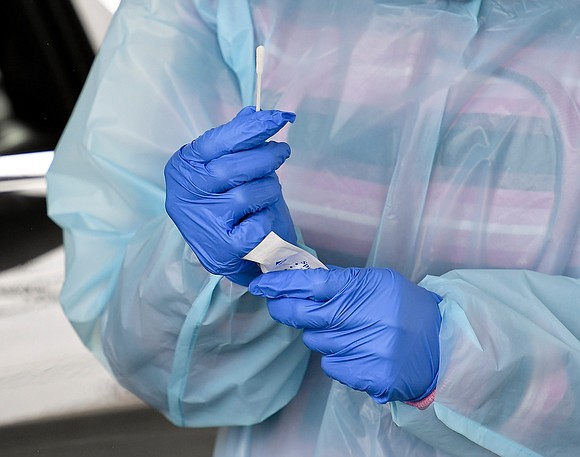More than half of US states broke records in daily Covid-19 cases this month. Now hospitals brace for an onslaught
CNN/Stylemagazine.com Newswire | 10/28/2020, 11:54 a.m.

By Madeline Holcombe and Holly Yan, CNN
(CNN) -- The fall Covid-19 surge keeps growing, with 29 states setting new records this month for the most new daily cases since the pandemic began, according to data from Johns Hopkins University.
And it's not just due to more testing. The average number of daily new cases this past week is up 21% compared to the previous week, according to JHU. But testing has increased only 6.63% over the same time frame, according to the Covid Tracking Project.
"We're rising quickly. If we just go back about six, seven weeks ago to Labor Day, we were at about 35,000 cases a day," said Dr. Ashish Jha, the dean of Brown University School of Public Health."
At least 73,240 new US cases and 985 deaths were reported Tuesday, according to JHU.
"I would not be surprised if we end up getting to 100,000" new cases a day, Jha said.
The surge is hitting all regions of the country. As of Wednesday, 40 states were trending in the wrong direction, with at least 10% more new cases this past week compared to the previous week, according to JHU.
Missouri is the only state with at least 10% fewer cases, and the remaining eight states are relatively steady.
Track the virus in your state and nationwide
And with more cases come more hospitalizations and deaths.
Without changes, 'half a million people will be dead'
This month, 11 states reported their highest single day of new deaths since the pandemic began.
And because a vaccine probably won't be available to most Americans until the middle of next year, personal responsibility will be key to saving American lives.
"If we continue our current behavior, by the time we start to go down the other side of the curve, a half a million people will be dead," said CNN Medical Analyst Dr. Jonathan Reiner, a professor of medicine at George Washington University.
Under the current conditions, the daily US death toll is projected to reach 2,000 by January 1, according to the University of Washington's Institute for Health Metrics and Evaluation.
In the past nine months, more than 8.7 million people in the US have been infected with coronavirus, and more than 226,000 have died.
Imminent threats to hospital capacity
Even after setting up a field hospital at the state fairgrounds, Wisconsin is facing a dire predicament with hospital capacity.
"There is no way to sugarcoat it. We are facing an urgent crisis, and there is an imminent risk to you and your family," Gov. Tony Evers said.
In Ohio, admissions to intensive care units have doubled since the beginning of this month, Gov. Mike DeWine said.
Colorado is also worried about hospital capacity as the number of daily new cases skyrocketed this month.
"If these trends continue, it would exceed May hospitalization numbers," Gov. Jared Polis said.
"And the modeling suggests that if we don't change what we're doing, it'll exceed all of the existing hospital capacity by the end of the year. This thing moves quick, and we need to change the way we live."
The city and county of Denver has reduced the maximum allowed occupancy of restaurants, retailers and some other businesses from 50% to 25%, according to a statement from the city Tuesday.
"Why we're doing this is to send a clarion call to everyone that we have a responsibility to once again put our hands on this boulder and begin to push it back up the hill," Denver Mayor Michael Hancock said.
A vaccine will have equitable distribution, official says
Although 44 vaccines have made it to clinical trials, it might not be clear which works best -- or if any work at all -- until they have been authorized and distributed to many people, a team of experts said Tuesday.
"Protection against severe disease and death is difficult to assess in phase 3 clinical trials due to the unfeasibly large numbers of participants required," the experts, led by Dr. Susanne Hodgson of Oxford University's Jenner Institute, said in a review in the Lancet Infectious Diseases.
That data may only come "from large phase 4 trials or epidemiological studies done after widespread deployment of a vaccine," the experts wrote.
But if a vaccine is approved, officials said they will distribute it quickly -- though some Americans will have to wait longer than others.
"We'll distribute vaccines, accordingly, to all of America simultaneously," Army Gen. Gustave Perna, chief operating officer of the federal government's coronavirus response, said at an online event hosted by the conservative Heritage Foundation think tank.
"We will make sure that there is equitable distribution in accordance with that priority," he said. After that, states will "own the actual final distribution and administration down to individual arms."
Until then, experts say social distancing, wearing masks and staying in your select bubble of people are crucial to helping quash this pandemic.



